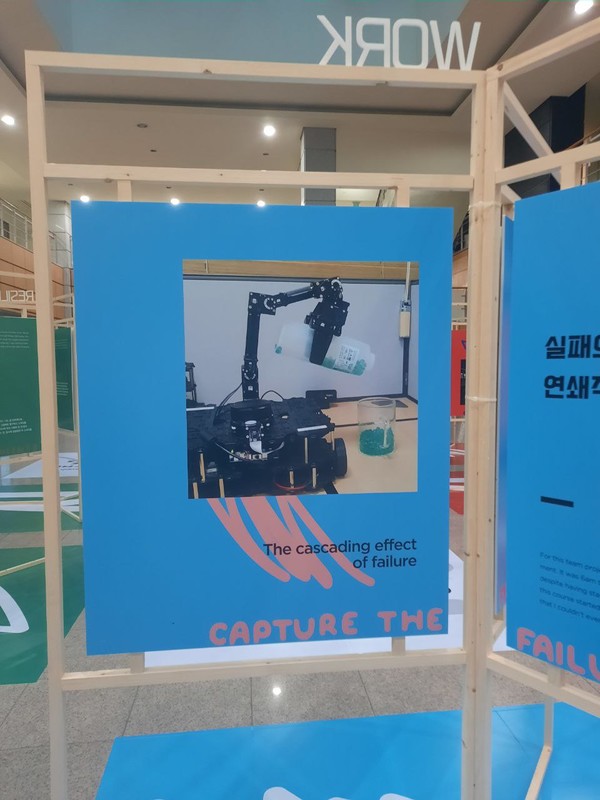The KAIST Center for Ambitious Failure (CAF) held the inaugural KAIST Failure Week from October 23 to November 3. Various exhibitions, student presentations, and guest lectures were organized by CAF to emphasize how failure is a natural part of life and that good can ultimately come out of it.
Established in June 2021, CAF is the main driving force behind encouraging KAISTians to take more risks and leaps while embracing any failures they may encounter. According to Professor Hyejeong Ahn of the CAF, the Failure Week was held to provide KAIST members an opportunity to reflect on and discuss their failures with others in order to inspire courage and compassion. “Undoubtedly the majority of KAIST members have encountered similar failures. However, opportunities to discuss them openly and honestly are limited, so they frequently endure their suffering alone and fail to discover viable solutions,” he added.
To kick off the KAIST Failure Week, a photo exhibition titled Capture the Failure Moment was held in the lobby of the Creative Learning Center (E11). The exhibition showcased the results of a photovoice research conducted by the CAF in May, and it revolved around four main themes: work, growth, life, and resilience. Photo submissions ranged from a single droplet that ruined a whole research project to a helpless robotic gripper unable to pour from a bottle properly.

The highlight of the two-week-long event was the Failed Tasks Showdown Contest, where ten students fought for the honor of having the “worst” failure in KAIST. To counteract the natural response of hiding and being ashamed of failures, the contest required the participants to share their biggest failures on stage in front of an audience of around 50 people. One student, in particular, shared how they accidentally discovered there was an abnormal blood swelling in their own brain while working at a cancer research lab. The goal was to focus on the lessons learned from past life events deemed as failures, Ahn shared. “We aimed to communicate that we are all going through a similar life process and that we can all learn important lessons from our experiences by discussing the failures that members of our school face in their everyday routines and lives,” he added.
With the success of the inaugural Failure, the CAF plans to hold the event annually. This first iteration only included the perspective of students, but the CAF hopes to include professors and staff members in the future. When asked about the importance of Failure Week, Ahn responded saying “Sharing one's failures with others in a psychologically safe atmosphere can be reassuring since it shows that we are not alone in experiencing unpleasant processes, and it also shows that we are resilient despite facing difficulties. During Failure Week, I hope KAISTians may find this understanding and inspiration.”

